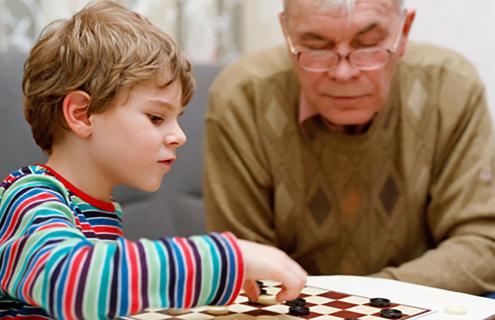
According to a new study, Americans spend more than 11 hours a day watching, reading, listening to or interacting with digital media. We do this despite the evidence that spending too much time every day looking at a screen can have adverse effects on our mental and physical health.
Research has shown the brain’s frontal lobe, which governs executive functions, such as planning, planning, prioritizing, organizing, and impulse control, are compromised by excessive screen time. Some studies even indicate that excessive screen time can have a negative impact to an area of the brain involved in our capacity to develop empathy and compassion for others. A study by the National Institute of Mental Health has found a strong and significant association between heavy Internet and/or social media use and depression.
But giving up all your screen time? It’s just not practical. Thankfully, experts agree that you don’t have to break up with your phone completely—you just have to relax your grip and strive for balancing screen time with other activities and getting adequate rest.
Make your bedroom a no-tech zone
Screen time is now associated with insufficient and poor quality sleep. Content over-stimulates brain waves and bright night light disrupts the body’s circadian rhythms by suppressing the release of melatonin, a hormone that regulates our sleep cycle.
Put away your phone during meals
For many of us, checking our phones has become an unconscious habit at the dinner table. And yet, according to a 2014 study from Virginia Tech, even without active use, the presence of mobile technologies has the potential to divert individuals from face-to-face exchanges, thereby undermining the character and depth of these connections. Individuals are more likely to miss subtle cues, facial expressions, and changes in the tone of their conversation partner’s voice, and have less eye contact—just because a cell phone is physically present.
Never have the phone easily accessible while driving
Teens and adolescents (as well as adults) are very susceptible to distraction and are 6-7 times more likely to have an accident when using a smartphone while driving.
Turn off as many notifications as possible
Notifications elevate the urge to use the phone and activate anticipatory dopamine in the mesolimbic brain reward pathways.
Designate tech-free hours
Many of us feel “naked” when we’re without our devices, but taking breaks from technology can do wonders for our well-being.
Balance your exposure to social media
Social media helps us to connect with people in unprecedented and truly gratifying ways. But research shows that the more time we spend on social media, the worse we feel. That’s not surprising, given the fact that we see only a heavily curated version of friends’ and celebrities’ lives, which can be toxic for self-esteem. Do a periodic self-check on how much time and importance you’re giving social media and consider ways to balance online social interaction with person-to-person time with friends and family.
The annual National Day of Unplugging, a 24-hour respite from technology highlighting the values of disconnecting from digital devices and connecting with ourselves, our loved ones and our communities, is in March. But with the holiday season approaching, now may be the perfect time to consider scheduling a bit of “digital detox” with family.
Invite your family to join you in making a pledge to unplug all devices and screens and stash them in a safe place for a time period you pre-determine. If you can’t start with unplugging for 24 hours, then try it for however long you can do it and build from there. You can make a game out of it by making the first to touch their phone has to do the dishes, shovel the walkway, etc. Turn off televisions when engaged in other activities other than planned viewing.
Here are a few ideas for spending some unplugged time together this holiday season:
- Share a craft project or some kitchen cooking time together
- Go outdoors and play, enjoy a winter sport, or take a walk in the beauty of a New England winter
- Play an interactive game or put together a jigsaw puzzle
- Visit local museums or the library
- Build a blanket fort and read aloud to each other
- Get out the coloring books and put on some music for an all ages coloring session
- Do an indoor or outdoor scavenger hunt, complete with prizes
- Arrange to do some volunteer work for a local organization
- Turn up some tunes and have a sing-along or dance party